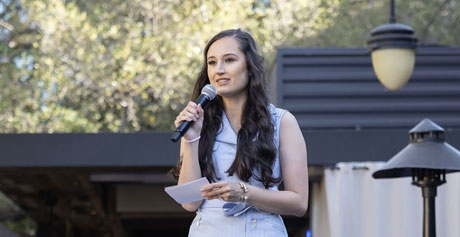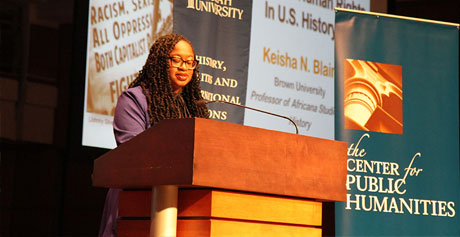Proven Leadership: Meet L. Karen Monroe, Alameda County Superintendent of Schools
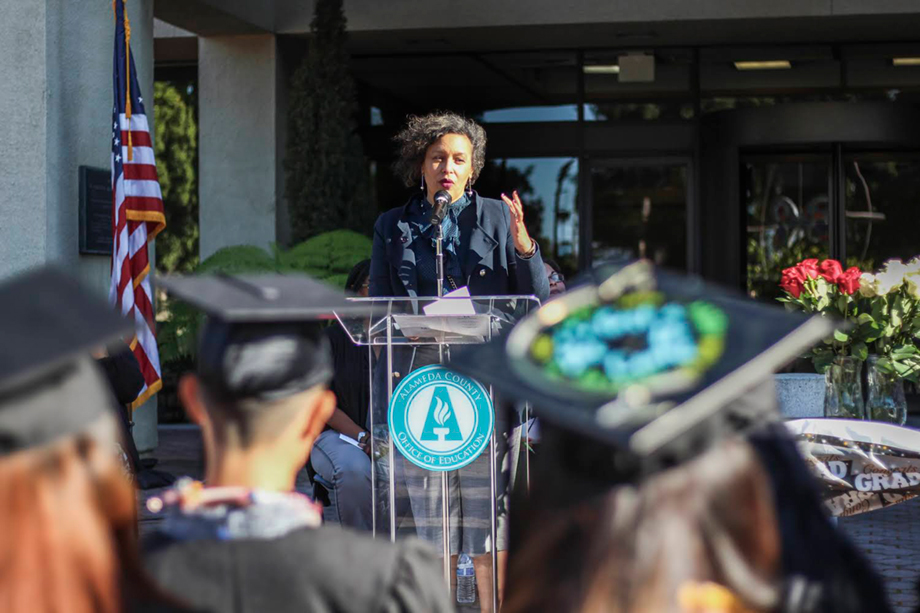
Q: How did your career begin and what led to becoming a School Superintendent?
LKM: My career began with an interest in college in public affairs and public policy. I graduated from USC with my Bachelor’s degree in public affairs. From there I went to Washington D.C. to work for Shirley Chisholm and began to understand better the nexus between education and policy. I came back to California and went to work in city government. I worked for the City of Compton and then for several non-profits before deciding I would become a teacher like my mother. I soon realized that I had an opportunity to step into leadership and realized the power to affect change through leadership and I followed the opportunity to lead and vision on behalf of students. That ultimately led me to the Superintendency in Alameda County. Though I wasn’t certain then where my career path would lead, I now feel I am in the exact right place at to have affect outcomes for the students who need it most.
Q: What's the toughest part of your job?
LKM: One of the most difficult parts of the job is to make sure that for districts and for leaders, there is a sense of accountability while focusing on the fact that we are educating children. You really have to hold both of those things at one time. As the County Superintendent, my role is to ensure providing accountability and oversight for the purpose of the success of the 220,000 kids in Alameda County. We must continually remember, amid our administrative tasks, that there is a human goal and a larger purpose for the work we do.
Q: Can you share with our audience one of your most memorable events your career?
LKM: I will not soon forget what it took successfully running for the office of County Superintendent of Schools. It was without a doubt one of the hardest things I have ever done — but an incredible learning experience. The opportunity to now impact policy and give voice to the critical issues affecting the students we serve is a privilege.
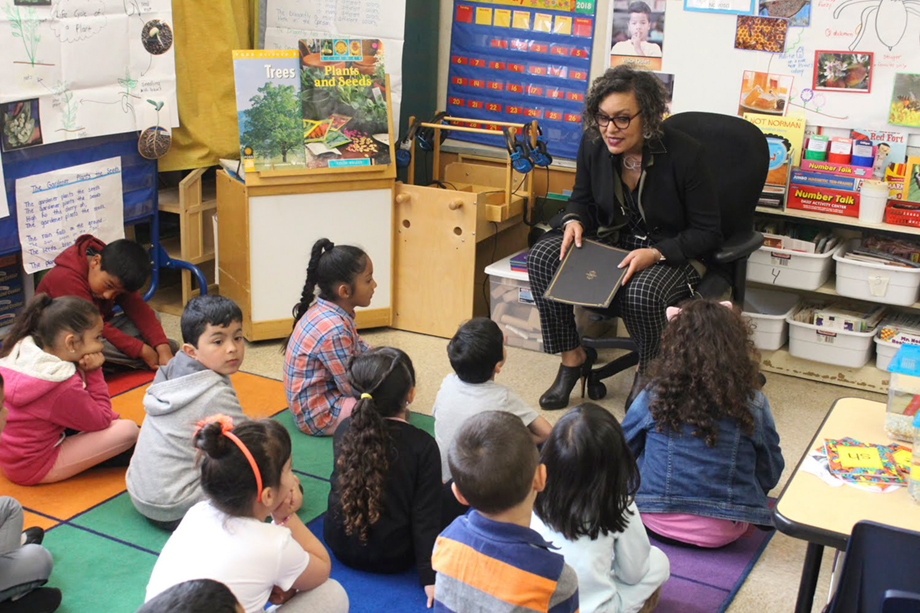
Q: I’ve read that STEM has a diversity problem… how bad is it and what is being done to improve these gaps for girls and especially students of color?
LKM: An important part of our work is laying the foundation for increasing opportunities for our students and especially our students of color and our girls in the STEM fields.
We know the need is there. Data tells us that only two percent of STEM jobs have included of people of color and women over the past three decades. California is home to 1.4 million jobs in this sector alone. We need to prepare our students not just for the jobs of the future, but the jobs of today. The jobs in these critical fields are here and we need capable, driven young people to fill them.
We are leading an effort called Alignment Bay Area that brings together leaders of industry, school districts, college, labor and community organizations. By putting all of these people together, we are looking to harness their experience, energy and resources to transform systems and come up with solutions to persistent inequities. We need a collective effort to expose our students to careers that will allow them to earn a living wage and launch them into productive adult lives.
Q: I see several issues facing Public Schools like; Classroom Size, Parent Involvement, Student Health (Obesity) along with Bullying. I’m sure funding is a big issue … what do you feel still needs to be done to assure that no child is left behind?
LKM: Funding is a critical issue. I was proud to have led an effort by the 21 Superintendents in in Alameda County in delivering a letter to the gubernatorial candidates advocating for a significant increase in education funding in our state. We have seen increases in recent years, but 90 percent of states in the U.S. fund public schools at a higher level than California. And it has an unmistakable impact on the instruction, programs and services we offer our kids. We must do better. The world is moving and changing fast and our students deserve the opportunity to keep pace. Chief among the services that we need to increase is mental health services for our students. Our kids are facing unprecedented pressures – academic, financial, social. They need support and resources and there must be funding for that.
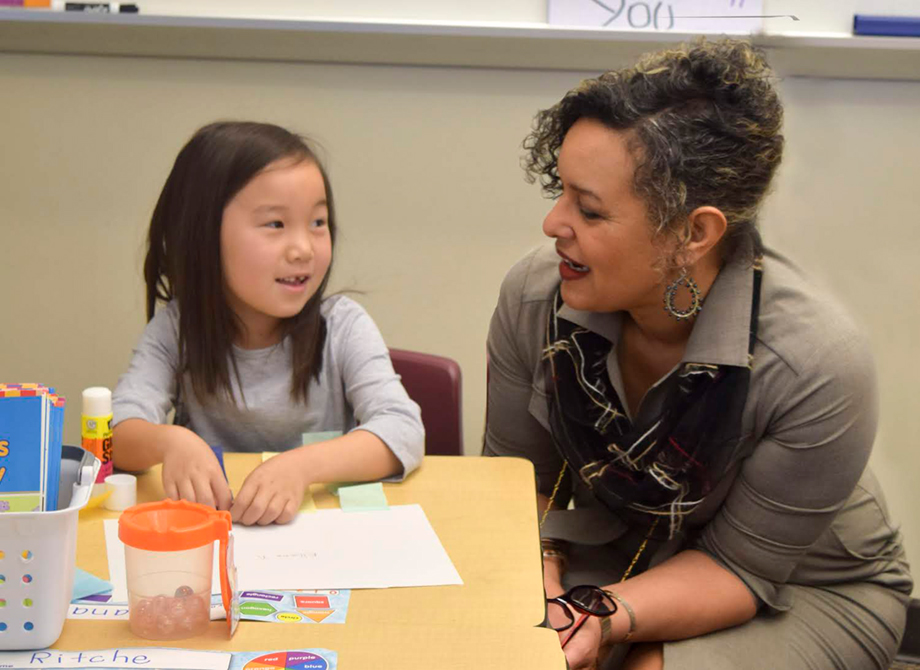
Q: What types of program can be implemented to assure students and teachers can have a continued successful partnership?
LKM: School climate is so critical to the success of students and teachers. We need to create conditions where both students and teachers feel empowered to learn, take risks and make the best decisions.
Q: What’s one leadership lesson you’ve learned in your career that you can share with our audience?
LKM: Stay open to opportunities to lead and trust your instincts about leadership. You always need to make sure you are well-informed as a leader, but at the end of the day, trust what your gut and your heart is telling you is the right decision to make. I would also say to be gracious with those you lead, be sensitive to the jobs they have and understand who they are as people.
Q: Which woman inspires you and why?
LKM: Working for Shirley Chisholm, as a historical figure, as a woman, she inspired me on so many levels. She was a first. She was brave and strong and understood the value of education. Closer to home, my mother is a person who absolutely inspires me. Being a teacher and a principal and really breaking barriers in her time as a teacher in Berkeley in the 60s, and an award-winning principal who really did meaningful work closing achievement gaps for students.
Q: What will be the biggest challenge for the generation of women behind you?
LKM: As someone who has a daughter in her early 30s, I feel as if the women of my generation were more able to easily step into a career and follow our aspirations. I think it can be more difficult for young people and women with the challenges they face, to do that now. The economics are different, the jobs of the present and future are different. And social media has a big impact on how young women perceive themselves, to the positive and the negative. I think the most important thing that helps young women is mentorship and positive roles models and making sure that they can be connected to people who can speak to what empowerment looks like.
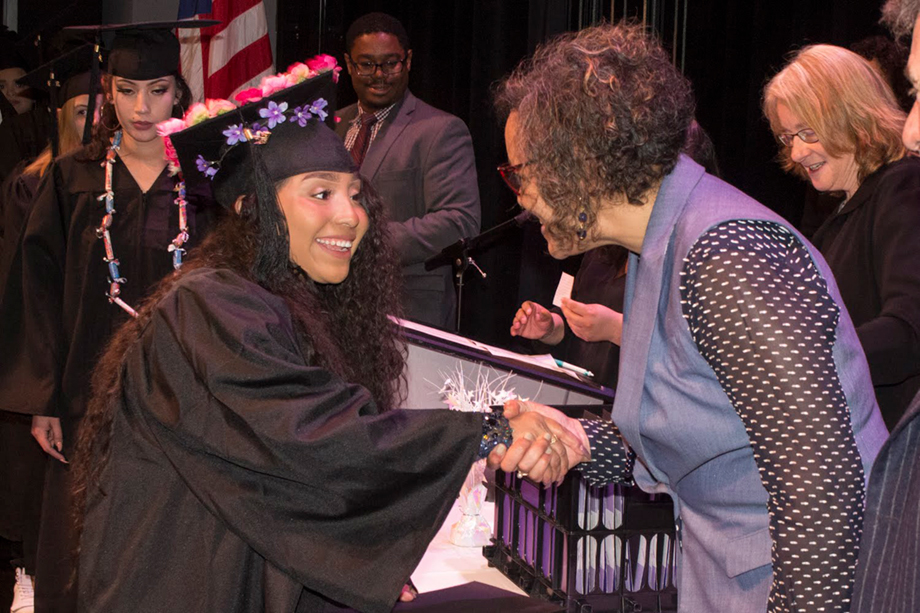
Q: Can you offer advice to parents with daughters graduating from high school?
LKM: I am no better equipped than anyone else to offer advice to parents of teens, but the most important thing to me is to build that relationship with your daughter. It is not easy during these years and you have to be intentional about spending time and making time and knowing what you have to offer, as parents, is enough. Yes, explore opportunities to expose them to great mentors and role models, but that is not a substitute for spending time as a parent. And for mothers and daughters, I think that’s extremely important.
Q: Can you tell us how you manage your work life balance?
LKM: It’s something I continually focus on because I still have work to do there. Entering my second term, particular things are in place here and I know the job better and can organize my work in a way that I’m hopeful it becomes more manageable. But it is something that I give serious consideration and thought to, because if you don’t, it will never happen. Even if you do, it can be a challenge.
You need to have partners and allies in life who will hold you responsible for that balance, who will spend time with you doing things outside of work, who you give permission to check you when that balance is not in place. I do have those people in my life.
Q: What do you like the most about living in the Bay Area?
LKM: I have lived in Southern California and in Washington D.C. and whenever I’m in those places, I find myself longing to return to the Bay Area. The Bay Area feels like home. I have always appreciated its diversity of people and geography and I feel like it’s nice to be from a place where people want to be. People want to be here for the great food, the great people and the great landscape. It’s certainly why I want to be here.
Q: What are some of your favorite interests and hobbies that you enjoy?
LKM: I enjoy spending time with family and friends or hiking or just having a really good conversation. One of the things I really enjoy doing is writing letters. It’s a lost art and I enjoy the art of penmanship and crafting a great retort.
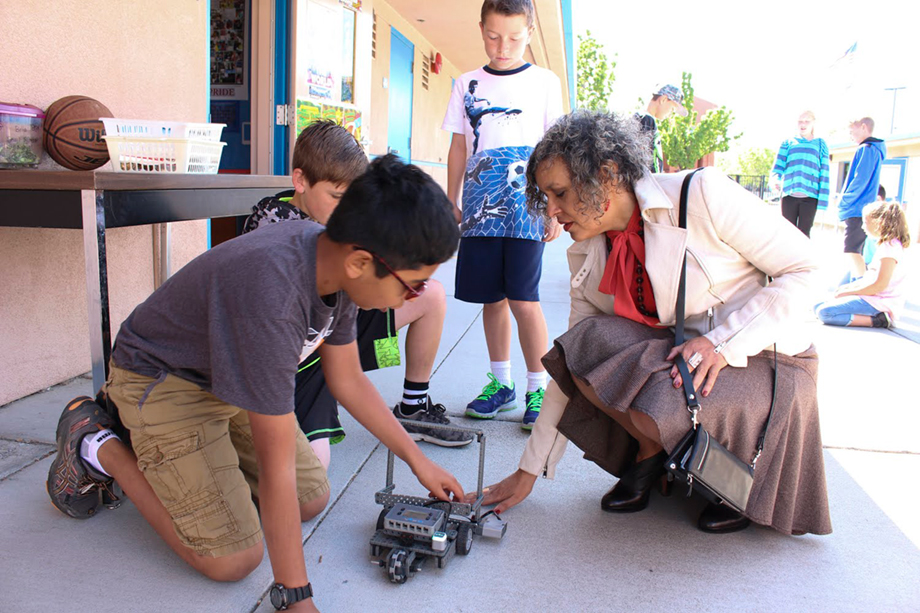
Five Things About L. Karen Monroe
1. If you could talk to one famous person past or present, who would it be and why?
Maya Angelou. I would like to sit down with her and some chocolate and a cup of coffee and just to hear her speak off the top of her head about how she sees life and the advice she would give.
2. When you were 10, what did you want to be when you grew up?
I wanted to be a singer-dancer-pilot-veterinarian. I wanted to be all of them.
3. What book are you currently reading?
(Laughter). Right now, I’m reading an anthology of short stories. I always seem to end up reading parts of books and coming back to them months later. So, short stories and anthologies work well for me right now.
4. Where is your favorite vacation spot?
I feel like I haven’t been to it yet. I do enjoy Martha’s Vineyard very much and I like Sea Ranch in California, but I think I’m still meant to go to my favorite place.
5. Do you have a favorite TV Show?
Good Bones on HGTV. A mother-daughter home improvement show. They are the owners of Two Chicks and a Hammer construction company. It’s great.
